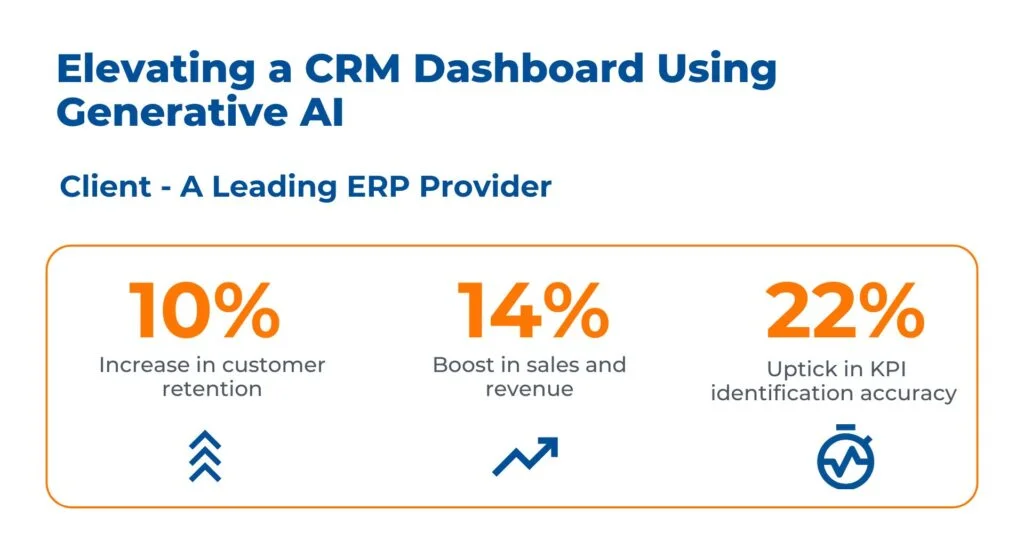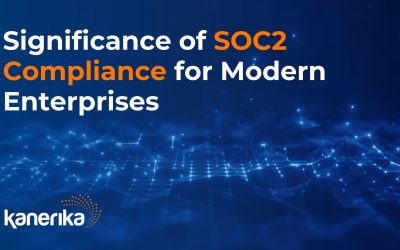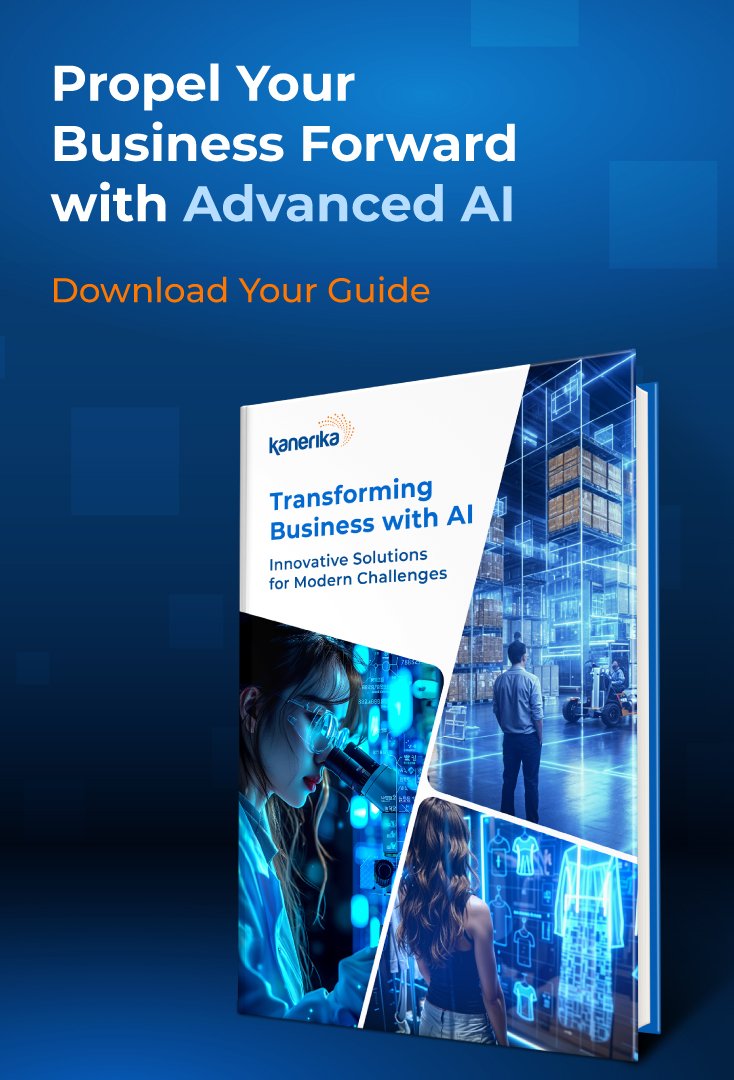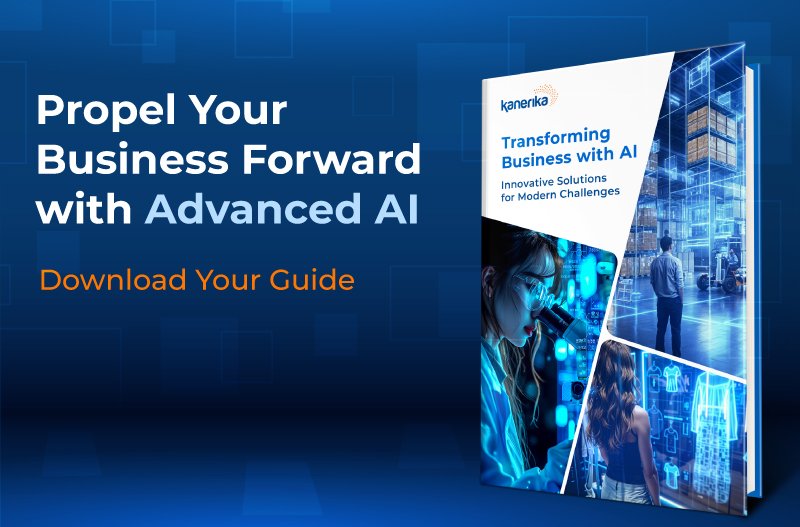Generative AI use cases are transforming the way businesses innovate and create. As you explore the capabilities of this groundbreaking technology, you come across a myriad of use cases that can potentially revolutionize various sectors. From content creation to complex problem-solving, generative AI leverages patterns and data to generate new content, save time, and reduce costs. This technology adapts through learning, making it a versatile tool in your arsenal for tackling a broad range of applications.
According to a survey by McKinsey in 2023, 50% of companies have already adopted generative AI in some form, and an additional 30% are planning to adopt it within the next two years.
Let’s find out more about top generative AI use cases.
Fundamentals of Generative AI
Generative AI is a subset of artificial intelligence that involves the use of machine learning technologies to create new, unique content. This content can take many forms, including images, videos, and even text.
At its core, generative AI relies on algorithms that are designed to learn from large datasets and then generate new content based on that learning. This means that the more data that is available, the more accurate and diverse the generated content can be.
One of the key benefits of generative AI is its ability to create content that is completely original and unique. This can be particularly useful in fields such as art and design, where creativity and originality are highly valued.
However, it is important to note that generative AI is not without its limitations. For example, it can struggle to generate content that is truly creative and innovative, as it is limited by the data it has been trained on.
Despite these limitations, generative AI has the potential to revolutionize many industries, from advertising and marketing to entertainment and education. As the technology continues to evolve, it will be interesting to see how it is used to create new and innovative content.
Creative Industries
In the realm of creative industries, generative AI is revolutionizing the way you create and consume media across various platforms.
Digital Art and Design
You can employ generative AI to produce intricate digital artwork and designs that would be time-consuming to create manually. Tools like GANs (Generative Adversarial Networks) enable the generation of novel images or the modification of existing ones, offering:
- Customization: AI algorithms can adjust to specific styles or requirements.
- Efficiency: Speed up the design process with quick iterations.
Music and Audio Production
Generative AI in music allows for the creation of new compositions and the enhancement of sound quality. This technology provides:
- Composition: AI software can generate music scores, aiding in composition.
- Sound Editing: Advanced editing capabilities for clarity and effects.
Film and Video Content Creation
AI algorithms in film and video production streamline complex tasks, such as editing and special effects rendering. They offer:
- Automated Editing: Simplifies cutting and sequencing.
- Visual Effects (VFX): Renders high-quality effects more expediently.
Literature and Storytelling
AI plays a significant role in generating narrative content, facilitating various aspects of writing and publishing. Elements include:
- Plot Generation: Ideas and story arcs conceived by AI.
- Character Development: AI aids in creating detailed character profiles.
Healthcare and Life Sciences
Generative AI is transforming healthcare and life sciences through accelerated drug development, enhanced diagnostic accuracy, and tailored treatment strategies.
Drug Discovery and Development
You’ll find that generative AI is instrumental in identifying potential drug candidates by predicting molecular activity. For example, AI algorithms can generate predictions about how different drug-like molecules may bind to specific proteins. This capability significantly reduces the time and cost associated with traditional drug discovery.
Notable applications include:
- Predictive modeling in target validation
- Generating novel chemical entities
- Enhancing lead optimization processes
Advantages of AI in drug discovery:
- Speed: AI can analyze vast chemical libraries swiftly.
- Precision: Generates highly specific drug compounds.
- Cost-Effectiveness: Reduces the financial burden of R&D.
Medical Imaging and Diagnosis
AI is adept at analyzing complex medical images, providing you with detailed insights for diagnosis. Applications like deep learning architectures can spot patterns and anomalies in images such as X-rays, MRIs, and CT scans more consistently than the human eye.
Key uses in medical imaging:
- Detection of diseases such as cancer, fractures, or neurological disorders.
- Monitoring disease progression.
- Guiding interventions and surgeries with precision imaging.
Benefits for you:
- Accuracy: Minimizes diagnostic errors.
- Efficiency: Speeds up the diagnostic process.
- Support: Augments clinician decision-making.
Personalized Medicine
Generative AI supports your healthcare journey by personalizing treatment plans utilizing patient-specific data. This includes genomic information, lifestyle factors, and disease history to optimize therapeutic effectiveness.
Personalized medicine applications:
- Tailoring drug regimens to your genetic makeup.
- Predicting your response to treatments.
- Customizing preventive care strategies based on individual risk.
Why this is revolutionary for you:
- Individualized Care: Treatments are fine-tuned to your unique needs.
- Prognostic Insights: AI can forecast health outcomes.
- Holistic Approach: Integrates diverse data points for a comprehensive view of your health.
Science and Education
Generative AI is revolutionizing the fields of science and education by offering new ways to create educational content, accelerating scientific research, and enhancing language learning with customization and efficiency.
Educational Content Creation
Your teaching materials can be personalized and diversified through generative AI. It enables the production of tailored quizzes and interactive textbooks that respond to a student’s learning pace and style.
- Textbooks: AI algorithms can generate sections of textbooks, complete with diagrams and questions.
- Quizzes: Personalized quizzes can be created based on a student’s past performance.
Scientific Research
AI is vastly expanding the frontiers of scientific discovery. By processing large datasets, generative AI helps you identify patterns and generate hypotheses at an unprecedented speed.
- Data Analysis: Quickly analyze complex data sets to uncover hidden patterns.
- Hypothesis Generation: Use AI to formulate new scientific hypotheses based on existing data.
Language Learning Tools
Generative AI powers language learning tools that adapt to your proficiency level, providing practice exercises and real-time feedback that aid in mastering a new language.
- Practice Exercises: Tailored exercises that adapt to your learning curve.
- Feedback Mechanisms: Instant corrections and suggestions to improve your language skills.
Technology and Engineering
In the realm of technology and engineering, generative AI is revolutionizing how tasks are performed and how solutions are crafted across various disciplines.
Robotics and Autonomous Systems
You are witnessing a transformation in robotics and autonomous systems as generative AI enables machines to learn and adapt in real-time. Robots, once programmed for specific tasks, now use AI to develop new movements and responses to their environment. This results in more efficient production lines and advanced exploration capabilities in areas too dangerous for humans. For example:
- Manufacturing: AI-driven robots streamline assembly with precision, leading to reduced waste and increased safety.
- Exploration: In unstructured environments like space or deep sea, robots utilize AI to navigate and relay critical data.
Software and Application Development
Your software development processes are being significantly enhanced by generative AI, reducing the time from concept to deployment. In application development, features like code suggestion and auto-completion are powered by AI, improving developer productivity. Key impacts include:
- Rapid Prototyping: Quick generation of code snippets and algorithm structures.
- Bug Detection: AI tools detect and suggest fixes for coding errors before they escalate.
Advanced Analytics and Simulation
You’re equipped to solve complex problems with generative AI, which excels in identifying patterns and predicting outcomes. In sectors like finance and healthcare, AI helps to simulate scenarios and provide analytics for decision-making. Consider the following applications:
- Risk Assessment: Financial models using AI forecast market trends with improved accuracy.
- Medical Diagnostics: Simulations predict disease progression and treatment outcomes, aiding in medical research and patient care.
Social Media and Entertainment
In these digital spheres, you’ll discover transformative applications that enhance interactive experiences and content creation.
Virtual Reality and Gaming
You find that virtual reality (VR) brings immersive gaming to a new level, allowing you to step inside your favorite games and interact with environments as if you were really there. Generative AI tailors game content in real-time to your actions, creating personalized storylines and scenarios.
- Adaptive NPCs: Non-player characters (NPCs) who react uniquely to your gameplay style.
- Procedural Generation: Infinite landscapes and levels crafted on-the-fly as you explore them.
Augmented Reality Experiences
Augmented reality (AR) melds your physical surroundings with digital overlays, enhancing the way you perceive the world. Generative AI powers:
- Real-Time Translation: Visual text translations superimposed on objects.
- Interactive Guides: AR characters that assist with educational content or shopping experiences.
Social Media Content Generation
Your presence on social networks takes on a new creative twist because generative AI swiftly produces engaging content suited to your personal or brand voice.
- Visuals: Generate unique images or modify existing ones to fit the aesthetic of your profile or campaign.
- Text: Craft captions, posts, and responses that align with your persona and communicate effectively with your audience.
Generative AI in Legal and Compliance
In recent years, the use of AI in legal and compliance has grown significantly. AI-powered solutions automate and streamline various tasks, including risk assessment, document summarization, and compliance monitoring.
Risk Assessment
AI can help organizations identify and mitigate potential risks by analyzing large amounts of data. By using machine learning algorithms, AI can identify patterns and anomalies in data that may indicate potential risks. This can help organizations make more informed decisions and take proactive measures to mitigate risks before they become a problem.
Document Summarization
AI can summarize legal documents, making it easier for legal professionals to review and analyze large volumes of information quickly. By using natural language processing (NLP) techniques, AI can extract key information from legal documents and present it in a concise and easy-to-understand format.
Compliance Monitoring
AI can help organizations monitor compliance with legal and regulatory requirements by analyzing large amounts of data and identifying potential compliance issues. By using machine learning algorithms, AI can learn to identify patterns and anomalies that may indicate non-compliance and alert organizations to take corrective action.
Overall, the use of AI in legal and compliance can help organizations improve efficiency, reduce costs, and mitigate risks. However, it is important to note that AI is not a replacement for human expertise and judgment. Legal and compliance professionals should work alongside AI-powered solutions to ensure that decisions are made in a responsible and ethical manner.
Entities covered: risk, legal, compliance, summarization.
Challenges and Ethical Considerations
Bias and Fairness
One of the biggest challenges in generative AI is the potential for bias and lack of fairness in the generated outputs. The AI models trained on historical data may contain biases and prejudices. As a result, the generated outputs may reflect and reinforce these biases, leading to unfairness and discrimination.
To address this challenge, it is important to ensure that the training data used to develop the AI models is diverse and representative of the population. Additionally, it is important to regularly audit the models for bias and take corrective action when necessary.
Data Privacy and Security
Another challenge in generative AI is the need to ensure data privacy and security. The AI models require large amounts of training data, which may contain sensitive information. If this data is not secured correctly, it can be vulnerable to attacks and breaches, leading to privacy violations and other security risks.
To address this challenge, it is important to implement robust data security measures, such as encryption and access controls, to protect the data used to train the models. Additionally, it is important to ensure that the generated outputs do not contain any sensitive information that could lead to privacy violations.
Responsible Use and Transparency
Finally, it is important to consider the responsible use and transparency of generative AI. This includes ensuring that the AI is used in a responsible and ethical manner, and that the generated outputs are transparent and understandable to the end-users.
To address this challenge, it is important to establish clear guidelines and standards for the use of generative AI. And, to ensure that these guidelines are followed. Additionally, it is important to provide clear explanations and documentation of how the AI models work and how the generated outputs are produced. This will help to build trust and confidence in the technology and ensure that it is used in a responsible and ethical manner.
Tailoring Success: Customizing and Personalizing Generative AI Use Cases with Kanerika
In today’s rapidly evolving digital world, the demand for customization and flexibility in generative AI use cases is more pronounced than ever. The Fortune 1000 survey revealed that a significant 64% of participants view these factors as primary challenges. At Kanerika, we don’t just recognize this demand; we actively address it.
We are pioneers in data analysis, decision-making, and business growth, driven by the innovative application of generative AI use cases. Our technology has the power to transform complex data into actionable insights, taking business intelligence to new and exciting heights. Always a step ahead, we leverage the latest tools and trends to offer solutions that are not just unparalleled but also uniquely tailored to individual business needs.
Guarding Innovation: Data Protection and Safeguarding Intellectual Assets with Generative AI
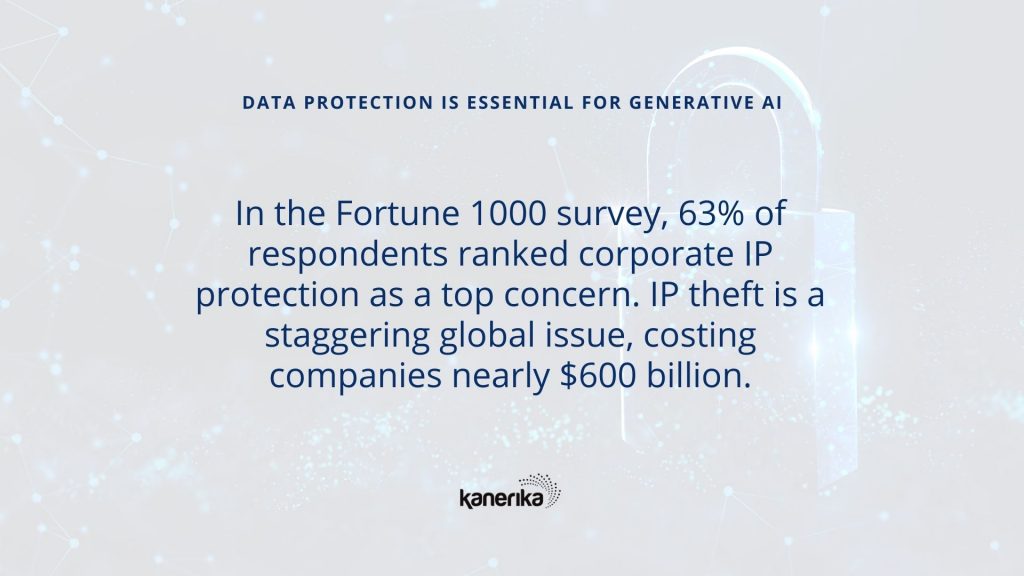
Intellectual Property (IP) theft is a staggering global issue, costing companies nearly $600 billion. In the Fortune 1000 survey, 63% of respondents ranked corporate IP protection as a top concern. This apprehension is not unfounded, as Generative AI tools can be vulnerable to data breaches without robust security measures, leading to unauthorized access to sensitive information.
The risks don’t end there. If the anonymization techniques are not rigorous, individuals can be re-identified from the generated data. This risk is further compounded by unauthorized data sharing and the inadvertent perpetuation of biases in training data.
At Kanerika, we recognize and proactively address these challenges in generative AI use cases. Our approach is multifaceted:
- Data Minimization: We adhere to the principle of collecting only the most essential data, reducing the potential for breaches.
- Rigorous Anonymization: Our commitment to data protection includes employing techniques like data aggregation and differential privacy.
- Transparency and Communication: Clear communication about our data practices ensures transparency.
- Bias Mitigation: We actively work to identify and counteract biases in AI training data.
- User Consent and Control: Emphasizing informed consent, we provide users with control over their data.
- Stringent Encryption Standards: Whether at rest or in transit, data is safe with our rigorous encryption standards.
Our relentless pursuit of excellence ensures that our practices align with global regulations. With Kanerika, data protection is not just a promise; it’s a commitment to innovation, trust, and integrity.
Ready To Navigate Generative AI Use Cases With Kanerika?
Business success is a multifaceted process, relying on leadership, teamwork, strategic planning, and even a touch of luck. But at its core, success thrives on adaptability. Embracing change and staying ahead of trends has proven time and again to be the key to enduring triumph.
Generative AI use cases are a goldmine of opportunity, and the corporate world is only beginning to uncover its vast potential.
Let Kanerika guide you through the intricate landscape of generative AI use cases and implementation. Our seasoned professionals handle the complexities so you can focus on delivering seamless customer experiences. We don’t just follow trends; we pioneer them.
Ready to explore the transformative power of Generative AI? Schedule a consultation with Kanerika today!
FAQs
How can organizations ensure that Generative AI aligns with data protection regulations and standards?
What risks are associated with Generative AI, particularly in terms of data breaches and intellectual property protection?
How can Generative AI be applied in business and data analysis?
What role does user consent and control play in data protection with Generative AI?
How can Generative AI tools be vulnerable to data breaches?
What is data minimization, and how does it reduce the potential for data breaches?
Why is intellectual property (IP) protection important in Generative AI projects, and why do 63% of respondents in the Fortune 1000 survey rank it as a top concern?









